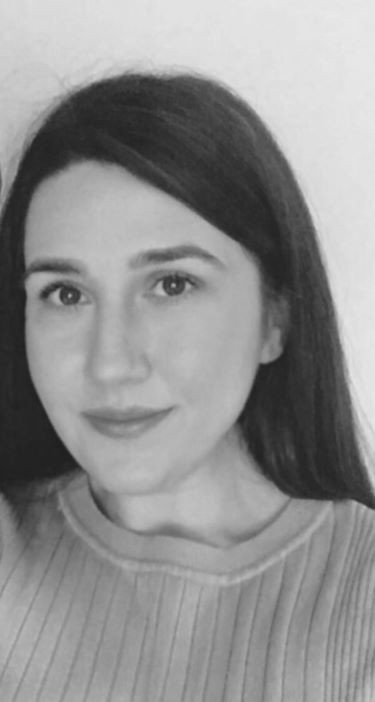
In this extra post, Donna Quinn, Jessie Paterson, Alan Jaap, and David Hope, highlight their PTAS funded project, that identifies practical everyday difficulties faced by Widening Participation students, and discuss ways to support them during their university life. Donna is a final year PhD student (Clinical Education) at the Edinburgh Medical School. Dr Alan Jaap is the Deputy Director of Teaching and Assessment Lead at Edinburgh Medical School. Dr Jessie Paterson is a retired Senior Lecturer in Student Learning at the R(D)SVS. Dr David Hope is a senior lecturer specialising in assessment and feedback at the Edinburgh Medical School.
Overview
The COVID-19 pandemic significantly disrupted education, at the school and university level. Policymakers have been concerned that students from historically under-represented groups – those who are the first in the family to go to university, the care-experienced, and those from economically-deprived areas – have faced unique challenges. Such students are typically referred to as “Widening Participation” (or WP) students and expanding their presence at university is a major current goal of the university and the Scottish government.
With the support of the Principal’s Teaching Award Scheme (PTAS), we undertook a project at Edinburgh Medical School and the Royal (Dick) School of Veterinary Studies to interview WP students, the staff who support them, and identify common challenges.
We identified the following major themes:
Finding connections: Student participants discussed the challenges of “fitting in” at the beginning of their course. Making judgement about, which peers might be best suited in terms of forming friendships was predominantly based on initial physical appearances. Some participants expressed a preference to develop friendships with “those who are like me”, in terms of gender, skin colour, or age group. For some, this was an organic process, some peers were known before the beginning of the course, either from secondary education or from halls of residence, and therefore friendships were able to be formed early on.
For some Scottish home students and international students, who did not know any of their peers beforehand, approaching others was more challenging. This was made significantly more difficult when all teaching was online, as students were less able to make such judgements and were more hesitant to approach other students individually through video call. When face-to-face teaching resumed, participants felt they had to make a concerted effort to approach already established peer groups, which caused them to feel nervous that they might not be welcomed or fit in. For some participants, this led them to develop a mindset of ‘going it alone’, and revising independently with very little support in terms of peer networks.
Whilst there was mention of induction days during Freshers week set-up in advance of the programmes’ beginning, some participants chose not to attend. These reasons included concerns about being in an environment where alcohol was served and age-related differences.
It’s all so new: All of the student participant accounts gave mention to how the structure of the Bachelor of Medicine and Surgery (MBChB) and Bachelor of Veterinary Medicine and Surgery (BVM&S) programmes differ significantly to how they were taught during secondary school education. Participants within both the MBChB and BVM&S programmes were generally surprised by the vast quantity of lecture material in the first year of each programme, and it took time to adapt and establish a study routine which worked for them. Some students tried to fully study every learning outcome, beyond what was expected of them, leading to unhealthy coping mechanisms and isolation from friends and family due to exhaustion.
Fitting in to an existing university structure: During the interviews, interviewees noted that the other students must be professionals and met the standards set at all times. Some participants expressed a feeling of detachment from the university.
Getting on with it and flying under the radar: Finding a balance between seeking support without being judged as “not having what it takes” to be a doctor or vet’ was challenging for participants, even when staff from both schools were described as ‘friendly’, ‘welcoming’ and ‘helpful’. For this reason, most admitted that they preferred not to seek guidance from staff and instead would turn to peers and textbooks for academic and pastoral support. Some participants expressed concern that should they admit academic difficulty to their tutors, that they would be reported to a governing body.
Financial concerns: The challenges of balancing study with part-time work, and the difficulties of finding accommodation, were raised both by students and the staff who supported them. Students found financial pressures to be considerable, and even travel costs to and from placements were often very burdensome. Those living away from Edinburgh were often noted to find it harder to get to classes and placements.
Outcomes
Edinburgh Medical School now operates a Student-Led Widening Participation Group. This group meets at least once a semester and discusses challenges to WP students and how to address them. This routine communication between staff and students is an example of co-creation of the curriculum, whereby students take an active role in designing and implementing the programme. It also allows for the early identification of challenges, and the ability to monitor the result of any changes.
Expanding access to higher education, given the ongoing cost of living crisis, will remain challenging. By identifying practical everyday difficulties faced by WP students, and ensuring collaboration among all stakeholders, we can help ensure WP students succeed while studying at the University.
 Donna Quinn
Donna Quinn
Donna Quinn is a final year PhD student of Clinical Education at Edinburgh Medical School with a background in Public Health and experience in qualitative interviewing. The topic of her PhD thesis is “Improving fairness in undergraduate medical education”, a multisite case study which aims to promote equitable support to all students on an MBChB programme by identifying and comparing how university staff at separate institutions currently recognise and support students at risk of failure. She is currently working to become an associate fellow of the HEA and is a volunteer for the LEAPS Widening Participation programme which encourages students from traditionally under-represented backgrounds to apply to higher education.
Jessie Paterson
Dr Jessie Paterson, who has retired, is an experienced Researcher and was a Senior Lecturer in Student Learning at the R(D)SVS, where she now holds an Honorary Fellowship. During her time at the R(D)SVS she had a particular interest in veterinary professionalism and student support. She holds a PG Diploma in eLearning and is a SFHEA, and has previously been an IAD secondee.
Alan Jaap
Dr Alan Jaap is Deputy Director of Teaching and Assessment Lead at Edinburgh Medical School. He has a research interest in learning, assessment and feedback in the clinical workplace and in preparation for clinical practice. He is a senior fellow of the HEA.
David Hope
Dr David Hope is a psychometrician specialising in assessment and feedback. A fellow of the HEA, he is closely involved in the assessment of undergraduate and postgraduate medical students and mentors on the Edinburgh Teaching Award. His previous work with PTAS has received a Teaching Innovation Award from the International Association for Medical Education. He is currently working on supporting at-risk students before they fail assessment, helping to improve formative feedback in the clinical assessments.


